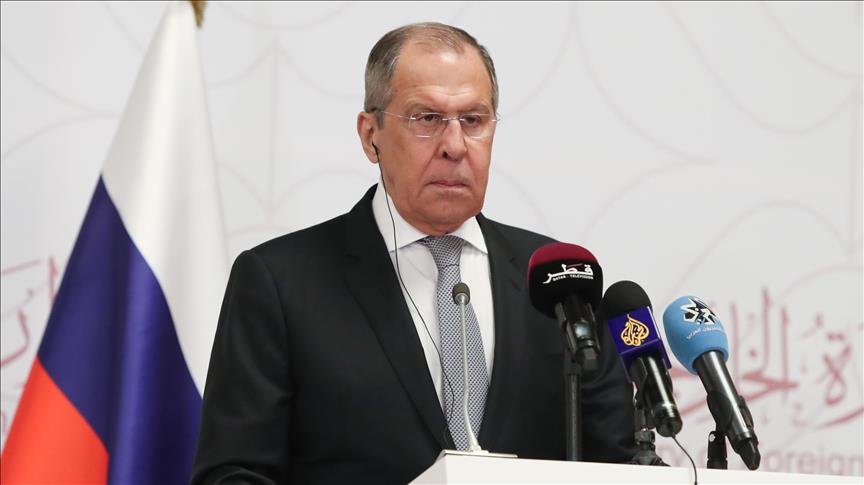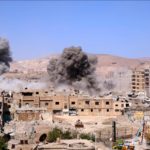From March 8 – 12, Russian Foreign Minister Sergey Lavrov toured the United Arab Emirates (UAE), Saudi Arabia and Qatar to discuss regional and international issues.
The tour began with the UAE, where Lavrov met the Crown Prince and de facto ruler Mohammed bin Zayed Al Nahyan; the country’s Foreign Minister Abdullah bin Zayed Al Nahyan and National Security Advisor Tahnoun bin Zayed Al Nahyan.
UAE authorities made exceptions for the Russian delegation where it was received in the Abu Dhabi emirate, although it is mostly closed for visits due to the coronavirus pandemic.
The delegation was also freed from an obligatory 10-day quarantine. However, Lavrov and the delegation had to take PCR tests before meeting the crown prince.
At a news conference, following the meeting, Russian and UAE ministers praised bilateral relation developments, confirmed “the overlapping or similar approaches” to the crises in the Middle East and promised to continue “close coordination” in Syria, Libya and Yemen.
The UAE foreign minister surprised journalists by saying US sanctions were the main obstacle for restoring dialogue with Syria. He also spoke in favor of Syria’s return to the Arab League and its reconciliation with regional Arab countries, which was considered a compliment to Russia, that has consistently urged the lifting of sanctions on Syria and for its return “to the Arab family.”
On Israel, Lavrov once again welcomed its normalization with Arab states, including with the UAE. However, he stressed that “a fair settlement of the Palestinian problem must not be relegated to the background.”
Lavrov then turned to Iran and encouraged Arab countries to talk with Tehran, saying “promotion, trust and transparency in military construction” will strengthen the region’s security.
Lavrov’s efforts to push Arab countries to better relations with Iran may have a deeper meaning than a simple desire to contribute to regional security, taking into account a recent statement by US President Joe Biden who said he was willing to return to the Iran nuclear deal.
Steps in this direction demand Washington’s coordination with its Arab allies and being that the UAE is the only regional player having contacts with Iran, Russia can ask for the UAE’s help in softening other stakeholders’ stance.
Lavrov also had an unplanned meeting with Lebanon’s former Prime Minister Saad Hariri, who has been trying to form a Cabinet since the deadly 2020 Beirut explosions.
So far, France was the main mediator between Lebanese sides without much success. The situation in the country has been deteriorating, and Hariri seems to be in need of any help he can find. Lavrov stressed many times that Moscow has good relations with all Lebanese sides, besides, Russia can also put in a good word for Hariri with Iran and the Arab countries, as their position counts in the issue of forming Lebanon’s government.













